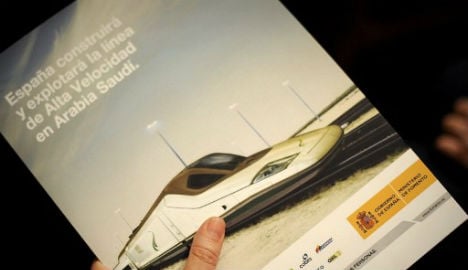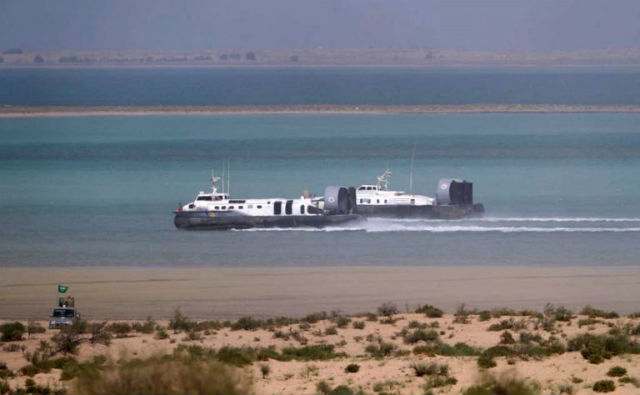SAUDI
Giant Spain-Saudi desert rail project delayed yet again
A delayed high-speed railway linking Mecca and Medina in Saudi Arabia will finally open in March 2018, the Spanish consortium building the project said Friday.
Published: 19 November 2016 11:50 CET

The project was one of the biggest ever undertaken by Spanish firms abroad. Photo: Pedro Armestre/AFP
The railway linking Islam's holiest cities was initially scheduled to open at the end of the year but the date for its completion was moved to the end of 2017.
Now, according to a spokesman for the Al-Shoula consortium, “full operations will start in March 2018.” Partial operations will begin a few months earlier, in December, he added.
Saudi Arabia in 2011 awarded the contract worth 6.7 billion euros ($7.1 billion) to the consortium of 12 Spanish companies and two Saudi firms for the project which aims to improve transport between the two cities during the
annual hajj pilgrimage.
According to the spokesman, Saudi authorities agreed to pay an extra 600 million riyals (150 million euros; $160 million) to compensate additional costs of the project.
The contract — one of the biggest Spanish firms have ever undertaken abroad — is for the laying of the 444 kilometres (275 miles) of track between Mecca and Medina, providing 35 trains and maintaining the line for 12 years.
When it is finished, the rail link will be able to move 166,000 passengers per day.
But the project has run into challenges that have added to its costs, leading to disagreements among members of the consortium over who is responsible for resolving them.
The rail line crosses the Arabian Desert, where sandstorms are frequent and large dunes can suddenly form, which has added to the difficulties in completing the project.
The leading firms in the consortium — Spain's rail company Renfe, train maker Talgo, and state track operator Adif — have extensive experience with Spain's own high-speed network, the world's second largest after China's.
Url copied to clipboard!


 Please whitelist us to continue reading.
Please whitelist us to continue reading.